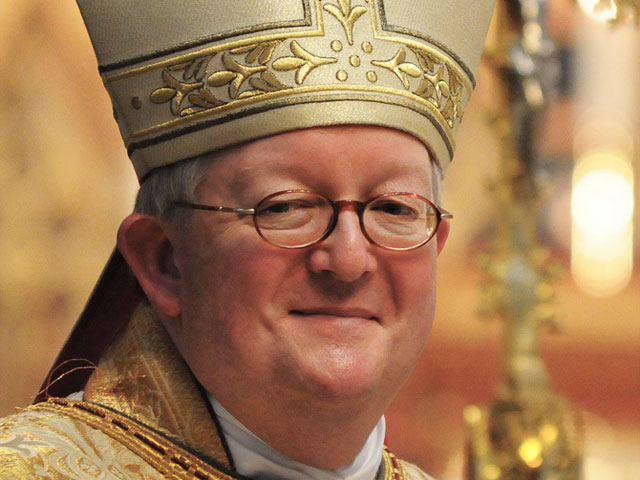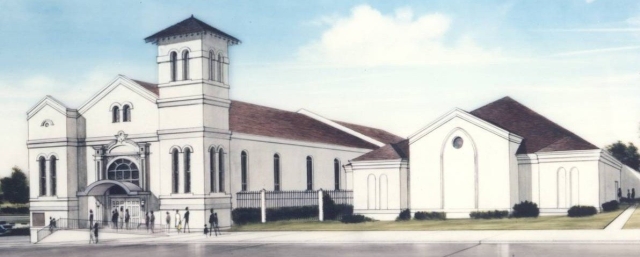Good Episcopalian that I am, I am ready to believe the worst about the Catholic Church.
Perhaps it was my upbringing, the culture in which I was formed, the schools where I was educated, my crowd. But accusations hurled against the Catholic Church of corruption, cruelty, mendacity — of being downright un-American –stick in the back of my mind. “Why not?”
I was also reared in Philadelphia and as a boy worshiped at the altar of the Eagles and Phillies. Longing and loss then were taught to me early on, as was support for the underdog.
Yet as much as I enjoy watching a good thrashing of the Vatican, I also am troubled by unfairness, foul play and sneakiness.
Which brings me to the documentary broadcast by PBS’s Frontline show entitled “Secrets of the Vatican“. This is an extraordinary film. It is beautifully made. I would not hesitate to say that the camera work, the musical scoring, the editing, and the writing are exquisite. Documentary film making does not get any better.
And yet, “Secrets of the Vatican” is also vile. Repulsive in that art and the extraordinary talent of its creators are put to malign purposes. It is propaganda — a film crafted to make arguments rather than to speak the truth.
At this point I must stop and respond to the cries of two competing choruses. My opening remarks about my own anti-Catholic bigotry are hyperbole designed to introduced the topic of bias. Nor am I claiming “Secrets of the Vatican” has suborned perjury from those whom it has presented on film.
It is, however, exaggerated, unbalanced, and seeks to inflame rather than inform. I do not expect a plaintiff’s attorney who specializes in clergy sexual abuse cases to present both sides of an argument in the documentary, but I would expect a film maker to do so, giving voice to the opposing side.
Catholic commentators have excoriated the film, accusing it of rehashing old stories and telling only half the tale. The popular conservative blogger Fr. Z wrote:
The objectives of the show are to pin all responsibility for every case of clerical sexual abuse not just on local authorities but on “the Vatican”, to detach sexual abuse from homosexuality, to undermine a celibate clergy, and to convince you that there are more homosexual priests than there really are. Finally, Pope Francis is the most wonderfullest Pope ehvurrr.
Let’s look at one vignette from the film — the claim that Catholic clergy are more likely to be child molesters than non-Catholic clergy — that illustrates my disquiet.
Frontline interviewed Dr. Martin Kafka, a Harvard University psychiatrist who has studied this issue. Kafka made the claim:
The number of Catholic clergy who are accused of or prosecuted for child and adolescent sexual abuse vastly outnumber the number of Protestant clergy.
Taken in isolation this statement could be construed to mean that reports of child abuse by Catholic clergy “vastly outnumber” reports of child abuse by Protestant clergy. That would be a statistic compiled by the FBI that would speak to reports of abuse.
However, in light of the surrounding comments, images and testimony offered by the film, the implication of Dr. Kafka’s statement is that Catholic clergy are more likely to offend than non-Catholic clergy.
The link comes in through the discussion of repressed sexuality and the film’s advocacy for allowing Catholic clergy to marry.
As a religion reporter I have covered the clergy abuse scandals for over a decade, but my reporting has focused on the Episcopal and Anglican churches. The Church of England, the Episcopal Church in the US, and the Anglican churches in Australia and Canada have seen their fair share of abuse cases. The scandal even touched the Presiding Bishop of the Episcopal Church who received into the priesthood of the Episcopal Church in Nevada a laicized Catholic priest who had been disciplined for abusing children while he was a choirmaster in Missouri and Minnesota — but did not tell the parish in Las Vegas where he had been assigned about his past.
But there has never been any evidence or study that I have read that substantiates claims that Catholic clergy are more likely to offend than Protestant clergy.
The Denver Post‘s Electa Draper addressed this issue in 2010 — and I have seen nothing that would challenge her reporting.
Draper states that while no studies comparing the rate of abuse between different denominations and faiths has been made that would substantiate the claim that Catholics are more likely to offend, the insurance companies who insure churches against abuse claims do not charge Catholics higher premiums than Protestants.
Wisconsin-based Church Mutual Insurance Co. has 100,000 client churches and has seen a steady filing of about five sexual molestation cases a week for more than a decade, even though its client base has grown. “It would be incorrect to call it a Catholic problem,” said Church Mutual’s risk control manager, Rick Schaber. “We do not see one denomination above another. It’s equal. It’s also equal among large metropolitan churches and small rural churches.”
Iowa-based Guide One Center for Risk Management, which insures more than 40,000 congregations, also said Catholic churches are not considered a greater risk or charged higher premiums. “Our claims experience shows this happens evenly across denominations,” said spokeswoman Melanie Stonewall.
She also reports that the:
National Center for Missing and Exploited Children President Ernie Allen said his organization has received more than 825,000 reports of child abuse and does not see any statistical indication the Catholic Church has a greater prevalence of cases than any other setting — after accounting for the size of the church, the largest Christian denomination in the U.S. and the world.
“There is a common denominator among those who abuse children,” Allen said. “They seek out situations where they have easy access and cover. It should surprise nobody that an abuser is a teacher, coach, youth leader, pediatrician, minister, priest or rabbi.”
This is what we call reporting. What we see in “Secrets of the Vatican” is called propaganda.











